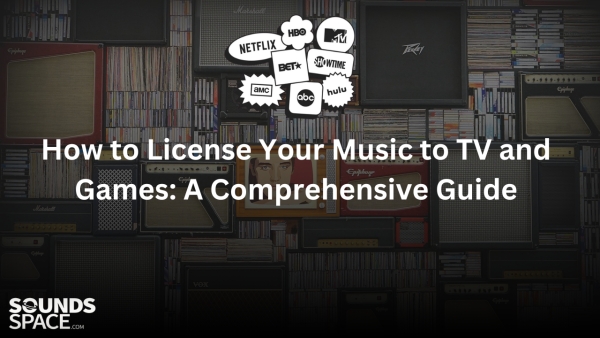Title: How to License Your Music to TV and Games: A Comprehensive Guide
Introduction
If you're a talented musician or composer looking to broaden your horizons and monetize your craft, licensing your music to TV shows and video games can be an excellent avenue to explore. This not only provides exposure for your music but also offers a lucrative source of income. However, breaking into the world of music licensing can be daunting if you don't know where to start. In this guide, we'll walk you through the steps to successfully license your music to TV and games.
1. Create High-Quality Music
Before you can license your music, you need to have an impressive portfolio of music that is well-composed and professionally produced. Take the time to hone your skills and develop a distinctive sound that sets you apart from others in the industry. High-quality music is the foundation of a successful licensing journey.
2. Understand the Licensing Process
To navigate the world of music licensing, you need to understand the basics of how it works. There are typically two types of licenses you'll encounter:
a. Synchronization License (Sync License): This grants permission to use your music in conjunction with visual media, such as TV shows, films, or video games.
b. Mechanical License: This allows the reproduction and distribution of your music, typically for physical media like CDs or digital downloads.
3. Build a Strong Online Presence
In today's digital age, having a strong online presence is crucial. Create a professional website and social media profiles to showcase your music and connect with potential clients. Consider using platforms like SoundCloud, YouTube, or Bandcamp to share your work.
4. Networking
Building relationships in the industry is essential. Attend music conferences, workshops, and local events to meet music supervisors, directors, and game developers. Networking can lead to valuable connections that may open doors for your music.

5. Register with a Performing Rights Organization (PRO)
To ensure you receive royalties when your music is used, register with a performing rights organization like ASCAP, BMI, or SESAC. These organizations collect royalties on your behalf when your music is played on TV and in games.
6. Create a Music Catalog
Compile your music into a catalog that potential clients can easily browse. Categorize your tracks by genre, mood, tempo, and instrumentation. A well-organized catalog makes it easier for music supervisors and game developers to find the perfect fit for their projects.
7. Pitch Your Music
Pitching your music involves reaching out to potential clients and licensing opportunities. You can do this directly or through music licensing agencies. Craft personalized pitches for each project, showcasing how your music aligns with their needs and vision.

8. Negotiate Fair Terms
When a client shows interest in using your music, it's crucial to negotiate fair terms and compensation. Consider factors like exclusivity, usage rights, and payment structure. Don't be afraid to seek legal advice if needed to ensure you protect your interests.
9. Clear Rights and Contracts
Ensure you have all the necessary rights to license your music. If you've used samples or collaborated with others, obtain the appropriate clearances and agreements. Clear contracts protect both you and your clients.
10. Monitor Usage and Collect Royalties
Once your music is licensed, stay vigilant about tracking its usage. PROs will help you collect royalties, but it's essential to keep records and ensure proper compensation.

Conclusion
Licensing your music to TV and games can be a fulfilling and profitable venture for talented musicians and composers. By following these steps and maintaining persistence, you can navigate the complex world of music licensing and turn your passion into a successful career. Remember that building relationships, creating high-quality music, and understanding the industry are key factors in your journey to success. So, get out there, make great music, and start licensing!



